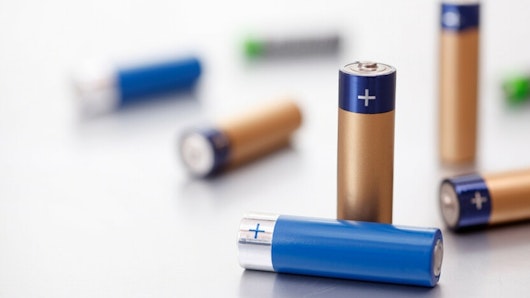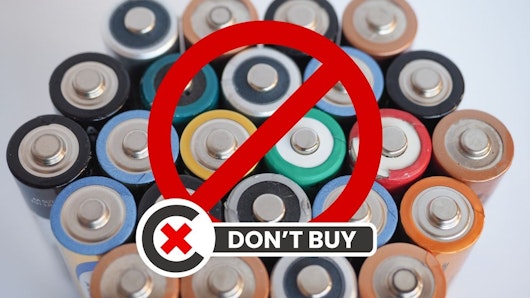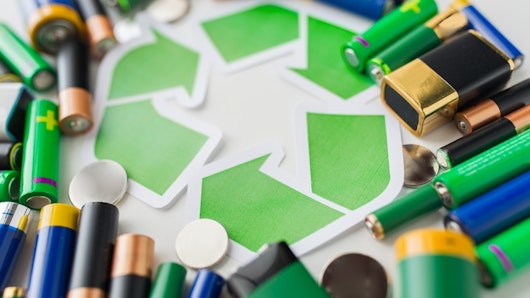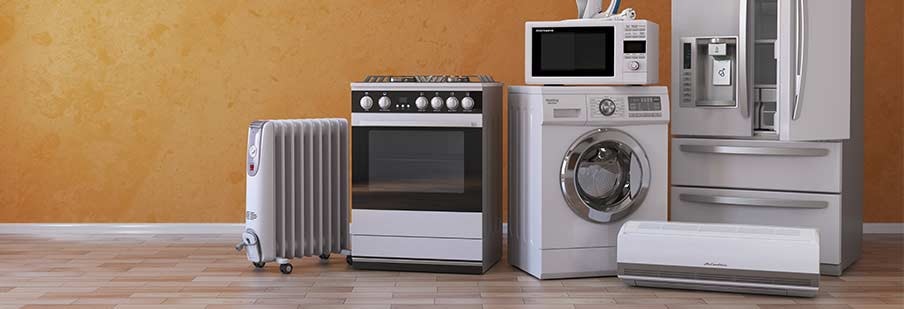There are many disposable AA battery brands and models, as well as different battery types (chemistries). Battery pack sizes and claims vary, and they range in price significantly too. So, which AA batteries should you get?
Types of disposable batteries
There are three types of disposable AA batteries: lithium, alkaline and carbon zinc.
Check your device or its user manual to find out which type to use. Battery packaging also often notes recommended uses, with reference to low, moderate and high-drain devices.
High-drain devices include remote-controlled toys and digital cameras.
Moderate-drain devices include torches, gaming controllers and wireless keyboards.
Low-drain devices include wall clocks, calculators, radios and TV remotes.
Each battery type has its pros and cons.
Lithium
Good for: all situations, and better than other disposable battery types for long-term storage and use in high-drain devices, such as digital cameras and remote-controlled toys. Also ideal for cold weather use, such as with headlamps for tramping and mountaineering.
Pros
Perform well in low-drain devices.
Perform very well in moderate and high-drain devices.
Perform well in extreme temperatures.
Light weight.
Excellent shelf life.
Won’t leak with normal use and handling.
Cons
Very expensive.
Alkaline
Good for: a wide range of applications, and ideal in low- to moderate-drain devices such as torches, gaming controllers, wireless keyboards, radios and TV remotes.
Pros
Perform well in low and moderate-drain devices.
Perform fairly well in high-drain devices.
Some models have a very good shelf life.
Many models have leak protection.
Low priced models available.
Cons
Heavy compared to lithium and carbon zinc batteries.
Some models have a poor shelf life.
Can eventually leak.
Carbon zinc
Carbon zinc batteries are typically labelled “heavy duty”, “super heavy duty” or “extra heavy duty”. That’s confusing as they don’t last nearly as long as other battery types.
Don't buy: Manufacturers of carbon zinc batteries recommend them for wall clocks, calculators, radios, TV remotes and other low-drain applications. But alkaline batteries perform significantly better and are often a similar price.
Pros
Light weight.
Many models have leak protection.
Low priced models available.
Cons
Perform terribly compared to other battery types.
Poor shelf life.
Can eventually leak, whether in use or in storage.
Some models are more expensive than alkaline batteries.

3 marketing tricks to ignore when buying batteries
With all the marketing jargon, it’s hard to know which are going to last the longest – and which will have you right back at the same spot again very soon.
Do disposable batteries expire?
Disposable batteries will eventually go flat, even if they’ve never been used. It’s better to buy only what you need instead of discounted bulk packs.
Although some disposable AA battery packs state a shelf life, you won’t know how long the batteries have already been on display, so look for the expiry date. Batteries might still work beyond their expiry date but they’re no longer guaranteed to have 80% or more of their original charge remaining.
The expiry date is usually printed directly on disposable AA batteries rather than on the packaging. Make sure it’s the expiry date you’re looking at – not the production date, which is often printed on the batteries too.
Lithium batteries typically have a shelf life of 10–12 years, although some manufacturers claim that certain models will last up to 20 years.
Alkaline batteries usually have a shelf life of 5–10 years.
Carbon zinc batteries have a shorter shelf life of 3–5 years.

Don’t buy these AA batteries
When you’re next reaching for a pack of AA batteries, there are three our testing has found you should avoid.

How to recycle used batteries
Batteries that get thrown away in landfill can get punctured and ignite serious fires. That's why it's vital we properly recycle our used batteries.


